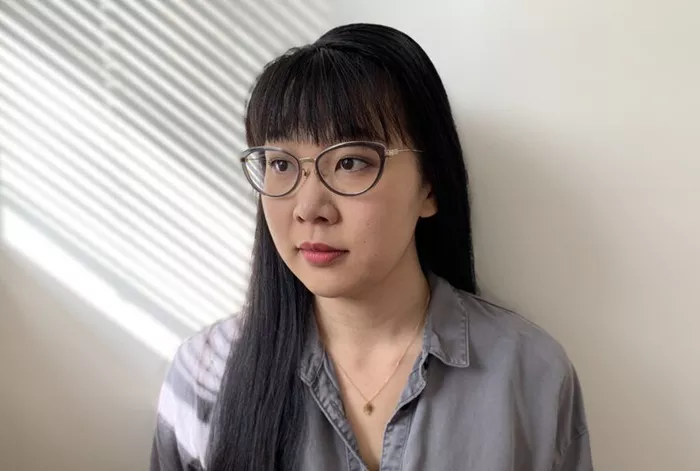In her latest poetry collection Mothersalt, award-winning poet Mia Ayumi Malhotra delves into the emotional, cultural, and physical dimensions of motherhood, offering a deeply personal and nuanced portrait of caregiving, identity, and transformation.
Published by Alice James Books and slated for release on May 13, 2025, Mothersalt is a lyrical exploration of Malhotra’s experience through pregnancy, childbirth, and early motherhood. The collection builds on her previous work, pushing beyond surface-level depictions of parenting to examine what it means to give and receive care.
“I felt that I needed to make poems that were more rigorous than just a flat description of what it feels like to be a mother,” Malhotra said in a recent interview.
To celebrate the launch of Mothersalt, Malhotra will appear at Green Apple Books on the Park in San Francisco on May 14. She will be joined by fellow poets Shelley Wong, Jennifer S. Cheng, and Cathy Linh Che—all of whom, she notes, have been integral to her creative and personal life.
“I asked each of them if they wanted to say a few words about the role of care and community in their writing lives, and then to read a poem or two so that we could sort of create a nest together for this new book,” Malhotra said.
The four poets first connected through Kundiman, a national nonprofit organization that supports Asian American writers. Malhotra, a fourth-generation Japanese American, describes Wong, Cheng, and Che as her “poetry siblings” and credits their friendship as a vital source of support and inspiration.
“I’ve really been gifted so much care and so much mothering from each one of them and from the larger community that we’ve been a part of,” Malhotra said.
Che, an acclaimed poet and editor, called Mothersalt “gorgeous” and expressed her excitement about the upcoming event. “Mia is a beautiful soul,” said Wong. “I look forward to celebrating her second poetry book as it has been written with profound care, wonder, and devotion.”
Malhotra is no stranger to literary acclaim. Her debut collection Isako Isako (2018) was a finalist for the California Book Award and winner of the Alice James Award. Her chapbook Notes from the Birth Year won the Bateau Press BOOM Chapbook Contest for 2021–2022. A graduate of Stanford University’s creative writing program, Malhotra also teaches poetry and serves on the advisory board of Left Margin LIT, a Berkeley-based literary center.
In Mothersalt, she weaves personal narratives with broader reflections on motherhood, often drawing on the experiences of other writers. One poem, “On Mothering,” incorporates a quote from Miranda Field’s essay on Fanny Howe:
“After I left the birth bed, I began to want a poetry in which motherhood was not so much its subject matter but its growing medium—the infrastructural condition of the poet’s feeling and speaking mind.”
Malhotra said the quote resonated deeply. “I think it really captured what I was after in trying to put these poems together,” she said.
For fellow poet Jennifer S. Cheng, Mothersalt fills a long-standing gap in literature about motherhood. “It brings together the complexities and contradictions of this very primal, very mysterious process of new motherhood—which is strangely excluded from public discourse in this country,” Cheng wrote in an email. “Malhotra not only names but transforms the hidden griefs and wounds into a kind of wild and deeply empowering beauty.”
The collection also allowed Malhotra to reflect on her cultural lineage. She found resonance with the prose-poetic style of ancient Japanese writers such as Sei Shōnagon, author of The Pillow Book. “I felt like I could write with a lot of assurance in this prose-like way because I could claim the lineage,” she said. “I felt really strongly a part of that lineage knowing that I was raising daughters and adding to that mother line.”
Malhotra dedicated the book to her two daughters, who are expected to attend the launch event. She described the poems as a kind of time capsule, capturing a past chapter of their lives.
“They’re both so much bigger than they were when I was writing these poems,” she said. “It’s almost like this is a time capsule of an earlier version of our family life.”
Despite the passage of time, Malhotra believes culture endures across generations.
“My kids are fifth generation, but I see in some of their aesthetics and their taste in food, there are these ways that culture really endures through diaspora and lots and lots of generations,” she said.

